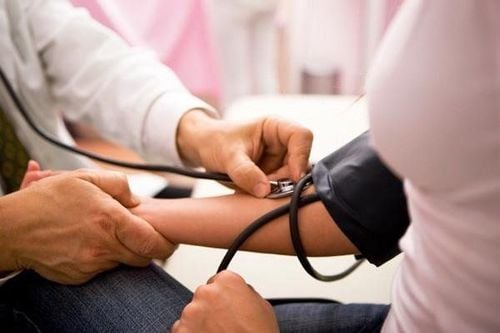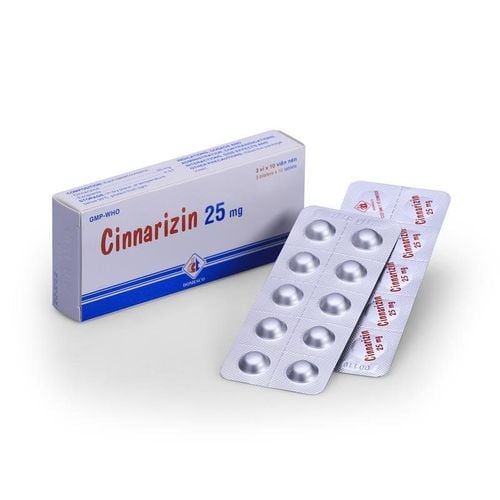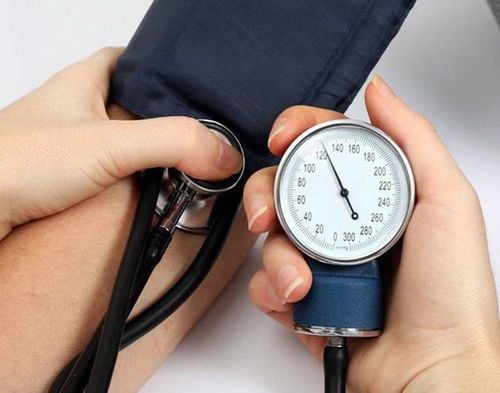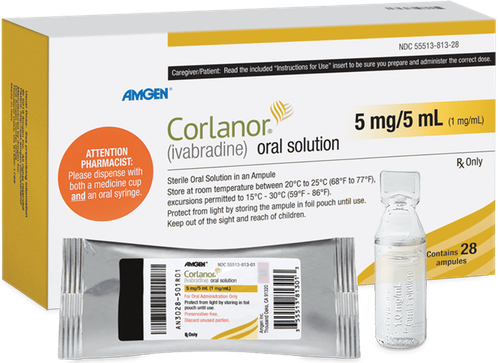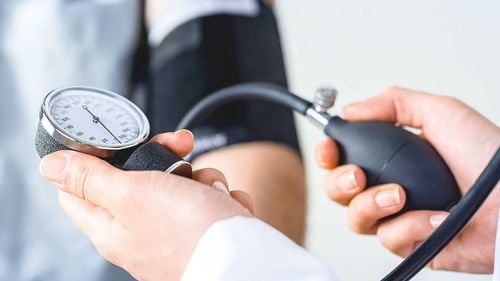This is an automatically translated article.
The article is professionally consulted by Master, Doctor Pham Van Hung - Department of Medical Examination & Internal Medicine - Vinmec Danang International General Hospital.
Blood pressure is the most basic parameter to assess human health status. Like high blood pressure, low blood pressure also makes the body tired, uncomfortable and even causes many dangerous complications. Understanding this issue will help keep blood pressure stable and protect the health of yourself and your loved ones.
1. What is blood pressure?
Blood pressure is the pressure of blood in the arteries to bring blood to the organs of the body. Blood pressure is created by the force of contraction of the heart and the resistance of the arteries.When measuring blood pressure, especially with electronic devices, we often see two readings: maximum blood pressure (also known as systolic blood pressure) and minimum blood pressure (also known as systolic blood pressure). stretch). Your doctor will diagnose you with high blood pressure when your systolic blood pressure is 140 mmHg or higher or your diastolic blood pressure is 90 mmHg or higher. If our blood pressure reading is always lower than 90/60 mmHg, it is considered low blood pressure. Thus, our systolic blood pressure ranges from 90 to 140 mmHg, diastolic blood pressure ranges from 60 to 90 mmHg, which is considered normal.
2. What is low blood pressure?
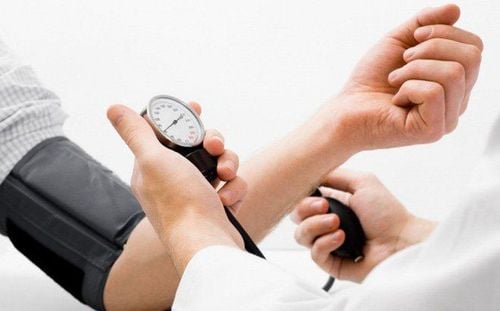
When blood pressure is low, the blood pressure in the blood vessels is not enough to supply the organs, making the activities no longer effective. The two most important organs in the body are the brain and the heart. Accordingly, low blood pressure is also a common cause of stroke or myocardial infarction. If low blood pressure is mild, the patient will also feel fatigue, weakness, lightheadedness, dizziness, dizziness, palpitations, heart palpitations, chest pain; More serious can be drowsiness, confusion, fainting, easy to cause accidents, injuries, dangerous to life.
3. What is the cause of low blood pressure?
Only when the exact cause of the drop in blood pressure is found, will the adjustment method be effective, and the circulatory activity will be stable.The most common cause of sudden drop in blood pressure is the side effect of antihypertensive drugs, especially diuretics. Blood pressure will also drop when we are dehydrated due to excessive sweating, acute diarrhea, vomiting or trauma that causes massive bleeding.
Healthy people can also experience a sudden drop in blood pressure after a hot bath, sauna, or steam bath. Elderly people or people with peripheral neuropathy due to diabetes for many years are prone to low blood pressure, causing lightheadedness, dizziness when changing positions suddenly, lying down or sitting suddenly standing up.
Some less common cases of hypotension are due to severe heart failure, too fast heart rate or due to septic shock, anaphylaxis.
4. What is the diet when you have low blood pressure?

In which, diet plays a very important role. The bare minimum to keep blood pressure at normal physiological values is to eat adequate nutrients. Encourage eating foods rich in fiber such as brown rice, green vegetables, ripe fruit. Do not squeeze fruit to drink water, but eat whole fruit to increase fiber. Eat foods high in omega 3 fatty acids such as salmon and mackerel to increase blood pressure. However, if conservatives follow a diet that is too strict, often skip meals, go vegan without paying attention to supplementing with essential proteins, it will be difficult to maintain blood pressure as well as live activities. normal.
Particularly for people with low blood pressure characteristics, in addition to a diet rich in nutrients, full meals, and a variety of vitamins, they should also eat saltier than the average person. It is also important to drink a lot of water, help increase blood volume, choose warm water such as ginger, ginseng and avoid alcoholic beverages such as beer and wine. We should also live in moderation, get enough sleep, and avoid overwork or sudden posture changes. Sleeping should be pillowed low, legs high. If we have to walk a lot, we should wear pressure socks to avoid blood pooling in the legs and return to the heart more easily.
At the same time, we should also exercise regularly will help keep arteries elastic, even in the elderly, help ensure blood flow and blood pressure at a normal level to perfuse blood to the brain . In addition, a good sleep, learning how to relax and rest such as meditating, practicing yoga, releasing tension inside each person, keeping an optimistic and happy spirit is also a measure to stabilize blood pressure. more focus. Strong emotions such as fear, anxiety, or depression can further lower blood pressure.
Finally, the most important thing to keep in mind is to regularly monitor the blood pressure of yourself and your loved ones, to know your health status and have timely interventions to avoid possible unfortunate consequences. out.
In summary, the diet when low blood pressure is completely simple, nothing fancy, complicated and can be applied in every family. When these things are followed along with regular blood pressure measurement and periodical health check, each individual will be completely safe to enjoy life.
Master, Doctor Pham Van Hung has 30 years of experience in examination and treatment of internal diseases, especially in Cardiology: coronary arteries, heart failure, heart valves, arrhythmias. ..Master, Doctor Hung used to hold the position of Deputy Head of Internal Cardiology Department and Head of Interventional Cardiology Unit at Da Nang General Hospital and is currently working at Department of Examination and Internal Medicine, Internal Cardiology, Cardiology. Interventional circuit at Vinmec Da Nang International General Hospital.
Please dial HOTLINE for more information or register for an appointment HERE. Download MyVinmec app to make appointments faster and to manage your bookings easily.





